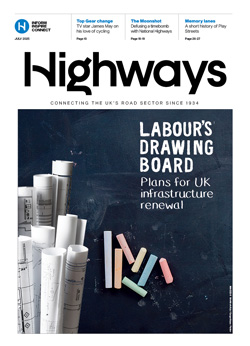A new Institute of Civil Engineers (ICE) green paper has indentified a list of reasons why major infrastructure projects 'cost so much and take so long - including rigid and short term funding decisions and ‘excessive’ optimism.
The paper looks at the disparity between forecasted and actual costs, as well as a seeming inability to stick to original timetables.
It highlighted multiple issues that can cause project delays. These include:
- funding decisions being too short-term and restrictive, which then leads to stop-start pipelines
- insufficient flexibility to reallocate funding within and across departments to expedite the delivery of projects
- knock-on impacts from cost and time overruns of megaprojects
- ‘excessive’ optimism in the initial estimates of the cost and timeline of projects
- and projects being initiated before they are ready - meaning costs and timings being ‘locked in’ before the scope and benefits are defined.
Consutlation
The report also examined the implementation of the ICE’s 2019 recommendations on closing the gap between forecasts and outturns, as well as the use of Project 13’s enterprise model.
The three areas that the recommendations focussed on were scoping projects, judging success and estimating and tenders, suggesting that there is still work to be done regarding the ICE’s advice.
The green paper outlined five key questions that ICE hopes to receive answers for from interested stakeholders:
1. How effectively have the ICE’s 2019 recommendations and the principles of Project 13’s enterprise model been implemented in the UK and globally? In particular, is should-cost modelling being applied consistently?
2. Are governance and assurance structures fit for purpose to support improved forecasting and delivery?
3. How do different international governments, industries or contexts vary in ways that contribute to major project delivery outcomes which may be relevant to the examples this project might look to as best practice assurance and governance?
4. Building on the ICE’s priorities for NISTA, how can the UK system improve cross-government coordination to support improved assurance and guidance implementation?
5. Which countries have implemented best practice digitalisation, and what can be learnt from them?
The consultation period will end on 11 July. Responses should be submitted to policy@ice.org.uk and will form part of an ICE policy paper that can be expected later in 2025.
Image credit: Shutterstock @Matthew Ashmore






